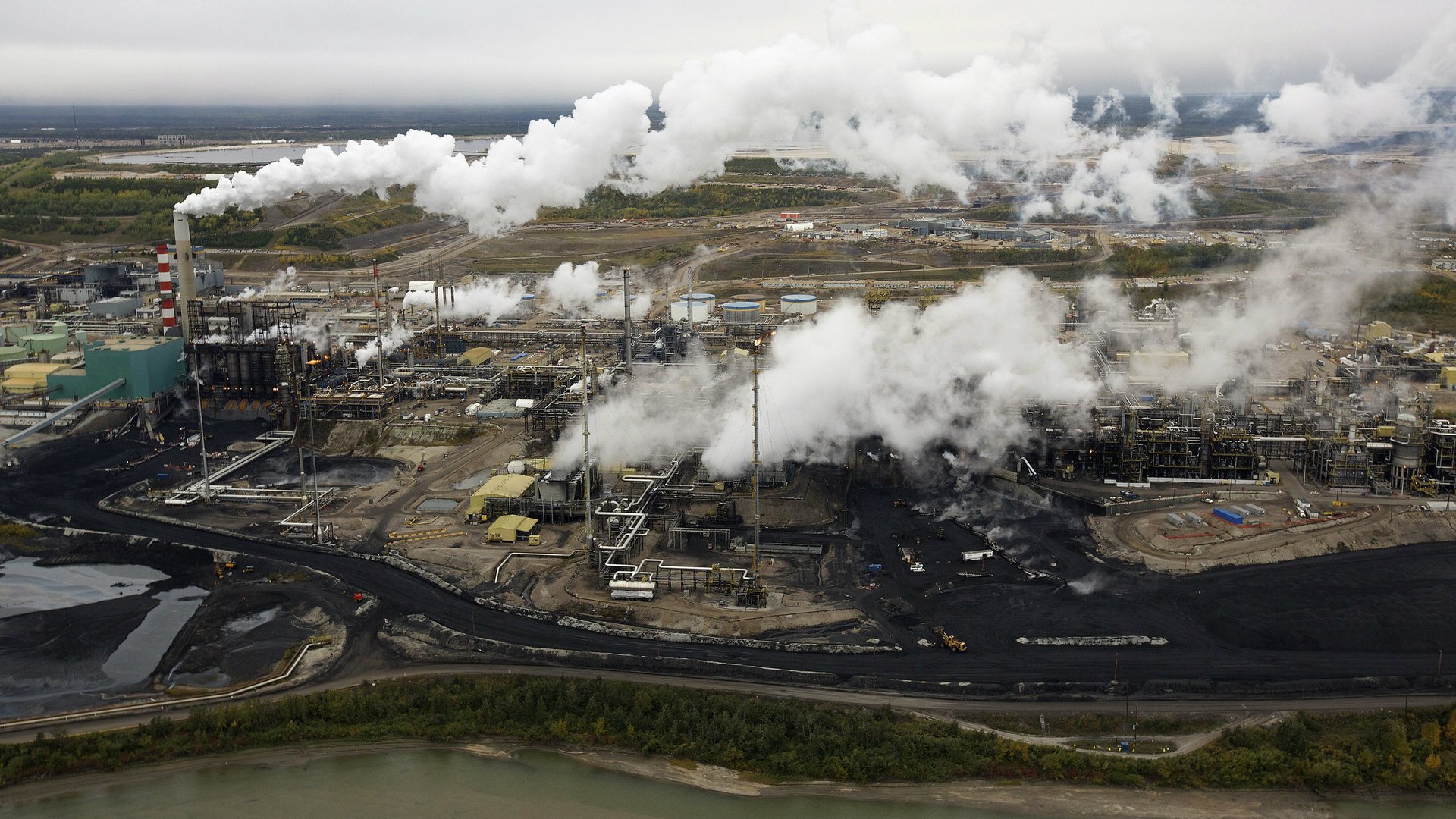Sustainability is all the rage but financing of extreme fossil fuels is on the rise
As the world struggles to keep to its commitment of stopping global temperatures from increasing more than 2°C above pre-industrial levels, there has been increasing scrutiny over the financial sector’s role in mitigating or worsening climate change.


As the world struggles to keep to its commitment of stopping global temperatures from increasing more than 2°C above pre-industrial levels, there has been increasing scrutiny over the financial sector’s role in mitigating or worsening climate change.
Last year, when economic losses from natural and man-made disasters exceeded $300 billion, big banks across the globe increased their financing of “extreme” fossil-fuels activities by 11% to $115 billion, according to a new report by a collection of environmental pressure groups. The report, called Banking on Climate Change, describes “extreme” sectors as those with significant contribution to global carbon emissions, which includes oil from tar sands, the Arctic, and ultra-deepwater wells; liquefied natural gas; coal mining; and coal power.
The report—produced by groups including BankTrack, Indigenous Environmental Network, Rainforest Action Network, and the Sierra Club—calculated the financing by 36 banks around the world to the top 30 companies in each of the above sectors and six extra tar sands pipeline companies. It found that in 2017, US and Canadian banks had increased their financing, while other regions including Europe and Asia had overall decreased money lent to these sector. The Royal Bank of Canada, Toronto-Dominion Bank, and JPMorgan Chase were the three leading banks.
The majority of this increase is explained by a huge jump in financing for tar sands extraction, which increased by 111% to nearly $47 billion in 2017. Tar sands extraction and related pipeline projects have been a particular target for environmental groups because tar sands have a high carbon intensity. Large deposits of tar sands are in Canada. In Alberta, in western Canada, there is potentially 2 trillion barrels of recoverable oil. Without the support for tar sands, bank financing for “extreme” fossil fuels actually would have dropped 17% over the prior year to $68 billion, the report said.
The report estimates that RBC’s financing of tar-sands activity in 2017 amounted to $11.5 billion, up from $2.7 billion in the previous year. TD Bank more than doubled its financing to $8.8 billion, while JPMorgan’s financing came to $7.3 billion, up from $1.7 billion in 2016.
It’s possible that increases in financing and in the activities available to finance has been encouraged by the rise in oil prices, which appear to be recovering from a steep decline in 2013 and 2014. But it comes at a time when banks have been raising awareness of their environmental, social, and governance (ESG) investing.
The World Economic Forum, which hosts an annual gathering of global elites in Davos, said this year that environmental risks dominated the concerns of its membership, much more than economic issues.
But banking efforts in explicitly environmentally friendly activities is growing slowly. For example, according to a recent report by S&P Global, the top 200 banks in the world have issued $27 billion in green bonds, debt that’s earmarked for environmental or climate-change projects. While this is a big increase from $1.5 billion in 2014, it’s just 1% of the nominal amount of total bond issuance from banks last year. In fact, S&P found that four-fifths of the top 200 banks haven’t ever issued a green bond and of those that have, most have issued only one.
The Banking on Climate Change report is also keen to point out those banks that have taken steps to decrease their involvement in “extreme” fossil-fuels activity. For example, Dutch bank ING doesn’t provide project finance for Arctic offshore oil exploration or engage in transactions relating to tar sands, nor finance pipeline projects such as Keystone XL, and French bank BNP Paribas said last year that it would stop doing business with companies whose primary activity involves oil and gas extracted from shale deposits or tar sands, and would cease to finance new projects in this area.
Still, the scrutiny on financial sector is likely to increase, especially as a divestment movement among public funds picks up steam. New York City mayor Bill de Blasio recently joined the chorus and said in January that the city’s pension fund would divest its $5 billion in holdings in fossil-fuel companies, while universities including Edinburgh, Cambridge and Oxford are doing the same.